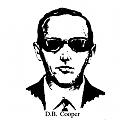Hello,
I am working on a Masters thesis that seeks to analyze the conditions behind provocations to the religion of Islam and the severity of the reaction to them. Both scenarios in which there was an adverse, violent reaction such as those in response to the Danish cartoons or the Qur'an burning by Terry Jones, as well as the complete lack of response such as after France banned Islamic face veils will be considered.
Essentially the paper will attempt to explain why such disproportionate expressions of rage take place when and where they do, and hopefully offer predictive value on what can be expected in response to future events.
I view the responses as being primarily incited by Muslim leaders due to the fact that some time passes between the offense and the reaction, as though waiting for the right time to exploit the Muslim community's sensitivities. This begs the question ... Exploiting them to what end?
While the anger and violence may be a genuine response to what is perceived as insulting Islam, can the whole issue be seen as a sort of cultural deterrence, an attempt to signal to the secular West that the sacrilege we tolerate will not in like manner be tolerated when directed at Islam? Or are there political goals that these agitations play a roll in achieving where religion is the means but not the end?
Anyway, I have been impressed with the insight folks on this discussion board have had on other topics and was hoping to get some feedback on these questions. Thanks in advance!
-Mark







 But seriously, you should always look at the local context of the responses. I suspect you will I encounter no little variation, though that variation might well be amenable to categorization.
But seriously, you should always look at the local context of the responses. I suspect you will I encounter no little variation, though that variation might well be amenable to categorization.

 ).
).


Bookmarks